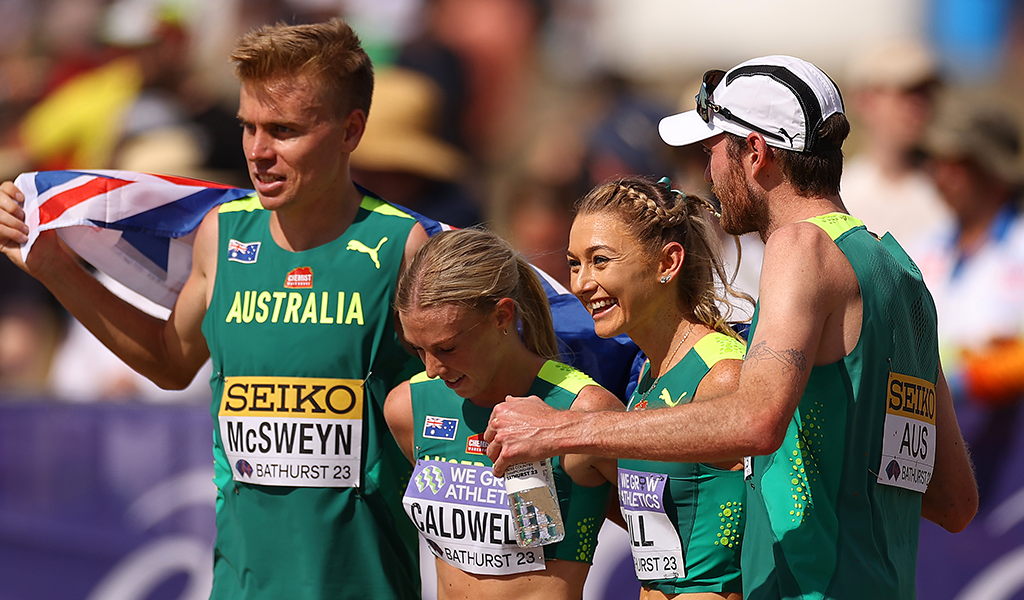The Role of Sports: Introduction to the Role of Sports in Australian Identity
The Role of Sports: Australia is a land of sunburnt beaches, vast outback landscapes, and vibrant cities. But what truly binds its people together? The answer often lies in the arena of sports. From cricket matches on sandy pitches to thrilling rugby games that electrify stadiums, sports are woven into the very fabric of Australian identity. For many Australians, cheering for their favorite teams transcends mere entertainment; it’s an expression of unity, pride, and passion. As we delve deeper into this dynamic relationship between sports and national identity, we’ll explore how athletic achievements resonate within communities and shape Australia’s cultural landscape. Get ready to discover why sporting events matter so much in this diverse nation!
The Role of Sports: The History of Sports in Australia
Sports in Australia have deep roots that trace back to Indigenous cultures, where traditional games celebrated strength and agility. Activities like marngrook, an early form of football played with a possum skin ball, highlighted the connection between sport and community.
As European settlers arrived in the 18th century, they brought their own sports. Cricket quickly became a national pastime, capturing the imagination of many Australians. By the late 19th century, rugby and Australian Rules Football emerged as defining sports for various regions.
The establishment of organized competitions fueled local rivalries and fostered a strong sporting culture. The first international cricket match in 1877 marked a significant milestone, symbolizing Australia’s emerging identity on the world stage.
Throughout history, sports have evolved alongside societal changes. The introduction of women’s leagues opened new doors for female athletes while fostering inclusivity within communities across Australia’s diverse landscape.

Unity: How Sports Bring Australians Together
Sports in Australia have a remarkable ability to unite people from diverse backgrounds. Whether it’s at the local park or a packed stadium, the sense of camaraderie is palpable.
When Australians gather to cheer for their teams, they set aside differences. The roar of support creates an atmosphere where unity thrives. From AFL matches in Melbourne to cricket games on the Gold Coast, shared experiences foster connections among fans.
Major events like the Sydney Olympics showcased how sports can bridge cultural gaps. The whole nation rallied behind athletes, showcasing collective pride and enthusiasm.
Moreover, grassroots initiatives promote inclusivity. Community sports programs encourage participation across age groups and abilities. This emphasis on teamwork cultivates friendships that extend beyond the field.
In every goal scored and medal won, Australians celebrate together. Sports become not just entertainment but a common thread weaving through various lives and stories across this vast land.
Pride: The Impact of Sporting Achievements on National Pride
Sporting achievements have a profound impact on national pride in Australia. When athletes excel on the global stage, it ignites a sense of unity among citizens. The victories become collective moments that everyone can celebrate together.
Events like the Olympics and World Cup create an atmosphere where Australians rally behind their teams with fervor. Icons such as Cathy Freeman and Ian Thorpe symbolize dedication and excellence, inspiring generations to dream big.
Winning isn’t just about medals; it’s about fostering a shared identity. Each triumph reinforces what it means to be Australian—resilient, competitive, and passionate.
The roar of the crowd at matches or events echoes through communities, binding people from different backgrounds into one spirited audience. This connection transcends individual differences, creating lasting memories rooted in pride for one’s country.
In essence, sporting successes fuel not just personal glory but a nationwide sense of belonging that resonates deeply within the Australian spirit.
Passion: The Love and Dedication for Sports in Australian Culture
Sports in Australia ignite a fervor unlike any other. From the thrill of AFL matches to the excitement of cricket games, Australians live and breathe their favorite sports.
Weekends transform into rituals. Families gather around screens or head to stadiums, donning jerseys with pride. Whether they’re cheering for the Wallabies or supporting local teams, the energy is palpable.
This dedication goes beyond mere enjoyment; it’s part of daily life. Youngsters aspire to emulate their heroes on fields and courts across the nation. Grassroots programs flourish as communities rally behind nurturing talent.
The passion also extends to events like the Australian Open and The Ashes, where national unity shines through spirited celebrations and fierce rivalries alike.
Engaging with sports creates lasting bonds between friends and strangers alike—this deep connection weaves itself into Australia’s cultural fabric, fueling both conversations and aspirations for generations to come.
Controversies and Challenges Faced by the Sporting Community
The Australian sporting landscape is not without its controversies. Issues such as doping scandals have shaken trust in athletes and organizations alike. High-profile cases, like that of Ben Johnson during the 1988 Olympics, cast long shadows over national pride.
Another challenge lies in the representation of Indigenous Australians in sports. While many excel at various levels, systemic barriers often hinder equal opportunities. This has sparked conversations about inclusivity and recognition within major leagues.
Moreover, mental health awareness is becoming an urgent topic. Athletes face immense pressure to perform, leading to struggles often hidden behind public personas. Initiatives are emerging to address this concern but more work needs to be done.
Financial disparities between popular sports and lesser-known ones also create tension within communities. Funding cuts can jeopardize grassroots programs vital for nurturing talent across diverse backgrounds. These ongoing issues reflect a complex relationship with sport in Australia’s identity narrative.
The Role of Sports: : The Evolving Relationship between Sports and Australian Identity
As Australia looks to the future, its relationship with sports continues to evolve. New generations are embracing a wider array of activities beyond traditional favorites like cricket and rugby.
Emerging sports such as basketball, soccer, and mixed martial arts are gaining traction. This shift reflects an increasingly diverse society where various cultural influences come into play.
Technology also plays a pivotal role. With the rise of digital platforms, fans engage in real-time discussions and share their passion online. This connectivity enhances community bonds across vast distances.

Moreover, social issues are prompting changes within sporting organizations. Discussions about inclusivity, mental health awareness, and environmental sustainability are reshaping policies at all levels.
The evolving landscape presents opportunities for growth while maintaining core values of unity and pride that have long defined Australian identity through sport. Adaptation will be key as Australians navigate this exciting journey ahead.
Frequently Asked Questions
What role does sports play in Australian identity?
Sports are a crucial part of the Australian identity, fostering unity and pride among its citizens. From cricket to rugby, these activities create common ground for individuals from diverse backgrounds.
Why is national pride significant in Australia’s sporting culture?
National pride stems from Australia’s achievements on global stages. Victories in major tournaments generate collective joy and bolster a sense of belonging among Australians.
How do controversies impact the perception of sports in Australia?
Controversies can both challenge and strengthen the sporting community. While scandals may tarnish reputations, they also lead to conversations about integrity, inclusivity, and reform within sports.
What challenges does Australian sport currently face?
Challenges include issues like funding disparities across different sports, athlete welfare concerns, and maintaining competitive standards against international counterparts.
How is technology influencing sports in Australia now?
Technology plays an increasing role through analytics for performance improvement and fan engagement via social media platforms. This evolution continues to shape how Australians connect with their favorite teams.
What can we expect for the future of sports in relation to Australian identity?
The relationship between sport and national identity will likely evolve as new generations embrace emerging athletic practices while retaining traditional values tied to iconic games like AFL or cricket.
Find out more at: https://www.eusa.eu/whats-up-role-of-sports-in-life












